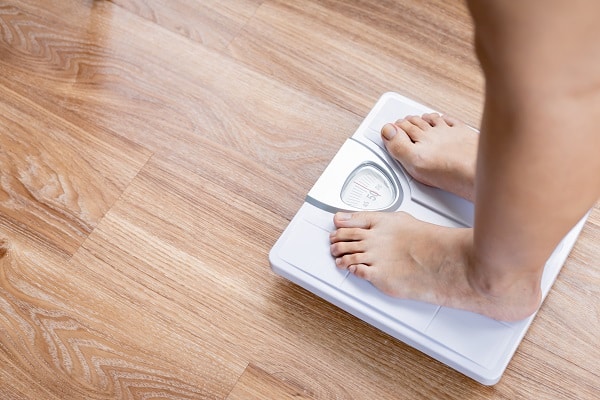Gluten-free diets are all the rage right now. Celebrities, athletes, and everyday people are swearing by them as a way to improve their health. But what are the actual benefits of going gluten-free? In this article, we will discuss some of the key benefits that you can expect to experience when you go gluten-free. We will also dispel some of the myths that often surround gluten-free diets. So if you are considering going gluten-free, read this post!
Contents
What Does Going Gluten-Free Mean Exactly?
For many people, going gluten-free is a diet choice. Whether they have celiac disease or they’re just trying to eat healthier, they avoid foods that contain gluten. But what does that mean, exactly? Gluten is a protein found in wheat, barley, and rye. It gives bread its chewy texture and helps the pastry rise. So when you remove gluten from your diet, you must find alternative flours that don’t contain wheat, barley, or rye, which can be tricky, as many packaged foods – especially processed ones – contain gluten. That’s why it’s essential to read labels carefully when grocery shopping. Additionally, you’ll need to be careful when eating out, as gluten can sneak into foods you wouldn’t expect – like soups and salad dressings. However, with a little effort, it is possible to maintain a healthy and delicious gluten-free diet.
Increased Energy Levels

Gluten is a protein found in wheat, rye, and barley. It can also be in foods that are processed or made with these grains, such as bread, pasta, cereals, soy sauce, and beer. For many people, eliminating gluten from their diet increases energy levels. Some people have difficulty digesting gluten, which can lead to fatigue, abdominal pain, and other symptoms. Others may not have any digestive issues but still feel tired after eating foods that contain gluten. Going gluten-free can help to increase energy levels by eliminating these fatigue-inducing foods from the diet. In addition, many gluten-free people find that they feel lighter and less bloated, which can also contribute to increased energy levels.
Helps Maintain A Healthy Weight

Another benefit of going gluten-free is that it can help you maintain a healthy body weight. In many cases, people who go gluten-free lose weight quickly and naturally simply by removing processed foods from their diets. However, some people gain weight by eliminating wheat, barley, and rye from their diet because some alternative flours and gluten-free alternatives are higher in calories. For instance, a piece of bread made with alternative flour can have almost the same calories as regular bread. However, if you focus on eating whole foods that don’t contain gluten when going gluten-free, you’ll be able to maintain weight without any issues. You’ll also be more likely to feel full and satisfied after eating, preventing you from unnecessarily snacking.
Better Digestive Health

As mentioned above, going gluten-free can be extremely helpful for people with celiac disease because it alleviates gastrointestinal symptoms caused by consuming gluten. However, many people – even those who don’t have celiac – experience gastrointestinal symptoms after eating foods that contain gluten. Gluten can lead to bloating and diarrhea, making it difficult for people to feel comfortable in social situations or athletic events. By removing gluten from your diet, you’ll be able to reduce these gastrointestinal symptoms and improve your digestive health, which is especially important for people with irritable bowel syndrome (IBS), as gluten can exacerbate the symptoms of this condition. Although going gluten-free requires some effort, the benefits are well worth it. Not only will you feel better physically, but you’ll also be able to maintain a healthy weight.
Improves Bone Health

One little-known benefit of going gluten-free is that it can help to improve bone health. Certain proteins in wheat, rye, and barley can affect the body’s ability to absorb calcium and other essential minerals. Eating a diet that doesn’t contain these grains can help you get more nutrients to keep your bones strong and healthy, which is especially important for older adults, as weak bones can lead to osteoporosis and other severe health conditions.
May Help Reduce Headache Occurance

People who suffer from migraines and headaches caused by gluten-sensitive enteropathy (also known as non-celiac gluten sensitivity) have reported that reducing or eliminating gluten from their diet can help to reduce the frequency of these painful occurrences. While more research is needed in this area, it’s possible that going gluten-free may be an effective way to reduce headache frequency and severity for people who are sensitive to gluten.
Improves Skin Health

Anyone who has dealt with acne, eczema, or any other kind of skin issue knows the frustration of trying to find a solution. There are a million different products on the market, and it can be hard to know which one will finally be the magic bullet. For many people, the answer lies in giving up gluten. Gluten is a protein found in wheat, barley, and rye, and it can cause inflammation in the gut. This inflammation can lead to all sorts of problems, including skin issues. When you remove gluten from your diet, you can see a significant improvement in your skin health. Your skin will be clearer, softer, and more radiant. You may even find that your acne clears up or your eczema disappears altogether. If you’ve been struggling to get your skin under control, going gluten-free may be the answer you’re looking for.
Will The Abundance Of Health Benefits Make You Go Gluten-Free?
In conclusion, there are a wide variety of health benefits to following a gluten-free diet. Not only can eliminating gluten help with conditions like celiac disease and irritable bowel syndrome, but it may also be helpful for people who deal with headaches and skin issues. If you’re ready to improve your overall health by going gluten-free, plenty of resources are available to help you get started. Whether you opt for a gluten-free diet on your own or with the guidance of a healthcare professional, there are plenty of reasons to try it. For many people, the benefits outweigh the sacrifices, making going gluten-free an easy choice in the long run.


